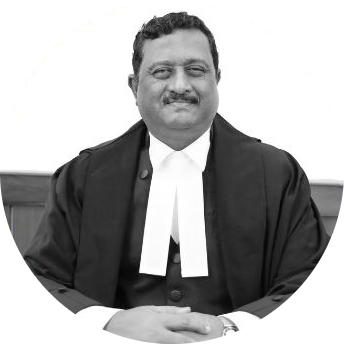P.B. Varale

P.B. Varale
Sitting Judge of the Supreme Court of India
Assumed Office25th Jan, 2024
Retires On22nd Jun, 2027
Previously
Chief Justice of Karnataka High CourtOctober 15th 2022 - January 24th 2024
Permanent Judge of Bombay High CourtJuly 15th 2011- October 14th 2022
Additional Judge of Bombay High CourtJuly 18th 2008- July 14th 2011
Profile
Early Life and Education
Justice Prasanna Bhalachandra Varale was born on 23 June 1962, in the city of Nipani, in the Belgaum district of Karnataka. He graduated from the Dr Babasaheb Ambedkar Marathwada University with a degree in Arts and Law in Aurangabad.
Career as an Advocate
On 12 August 1985, Justice Varale enrolled in the Bar Council of Maharashtra and Goa. In his 23 years as a practising lawyer, he practised in civil, criminal, labour, and administrative matters in the District and Sessions Court of Aurangabad. He appeared in constitutional matters before the Bombay High Court Bench in Aurangabad.
Between 1990 and 1992, he served as a lecturer in Law at his alma mater, Ambedkar Law College, Aurangabad.
Justice Varale was appointed as the Assistant Government Pleader and Additional Public Prosecutor at the High Court Bench in Aurangabad. He was later appointed the Additional Standing Counsel for the Union of India.
Career as a Judge
Justice Varale was appointed as the Additional Judge of the Bombay High Court on 18 July 2008. Two years later, on 15 July 2011, he was elevated to a Permanent Judge of the High Court.
On 28 September 2022, after serving at the Bombay High Court for 14 years, the Supreme Court collegium led by Chief Justice of India U.U. Lalit recommended Justice Varale as the Chief Justice of the Karnataka High Court. On 15 October 2022, the Union government appointed Justice Varale as the Chief Justice of the Karnataka High Court.
On 19 January 2024, the Supreme Court collegium led by Chief Justice D.Y. Chandrachud recommended Justice Varale as a Judge of the Supreme Court of India.
The resolution took into consideration his seniority among other Judges from a Scheduled Caste community. He was also the only Chief Justice of a high court from the scheduled caste community.
On 24 January 2024, the Union appointed Justice Varale as a judge of the Supreme Court. He was the 15th Judge to be appointed under the Collegium led by CJI Chandrachud.
According to Figure 1, Justice Varale has authored 54 judgments and has been a part of 129 benches so far.
According to Figure 2, Justice Varale authored the most of his judgments in criminal law (44%), property law (8%), motor vehicles (6%), civil law (4.5%), and direct taxes (4.5%).
Notable judgements
In February 2024, the Division Bench of Justice Sudhanshu Dhulia and P.B. Varale, in Raju Krishna Shedbalkar v State of Karnataka, held that the mere non-performance of marriage does not amount to cheating. The Bench quashed the proceedings and held that the prosecution must have reliable and trustworthy evidence to prove an offence of cheating under Section 417 of the Indian Penal Code, 1860.
In M/S A.K. Sarkar v The State of West Bengal (2024), the bench consisting of Justice Dhulia and Varale interpreted the principle of retrospective operation of statutes under Article 20(1) to hold that the Article does not prohibit the Court from imposing a lesser punishment as per new laws.
Dismissing the petition seeking anticipatory bail for an accused in a POCSO matter in Utpal Mandal v State of West Bengal, the division bench of Justices Sandeep Mehta and PB Varale reiterated certain guidelines for judicial and police officers to follow to keep the identity of the victim undisclosed.
In The Number of Reported Child Rape Incidents, a Division Bench of Justices Bela Trivedi and PB Varale emphasised the need to take appropriate steps to sensitise POCSO matters and to create more special courts to fast-track POCSO Cases.
In June 2025, the bench of Justices Sanjay Karole and P.B. Varale, in Amlesh Kumar v State of Bihar, held that the accused has the right to undergo a narco-analysis test voluntarily. The judgment links to the landmark law laid down by the Court in Selvi v State of Karnataka (2010), which held that narco-analysis tests violate personal liberty under Article 21 of the Constitution. The Court mentioned that it is essential for safeguards to be in place to undergo a narco-analysis test voluntarily.